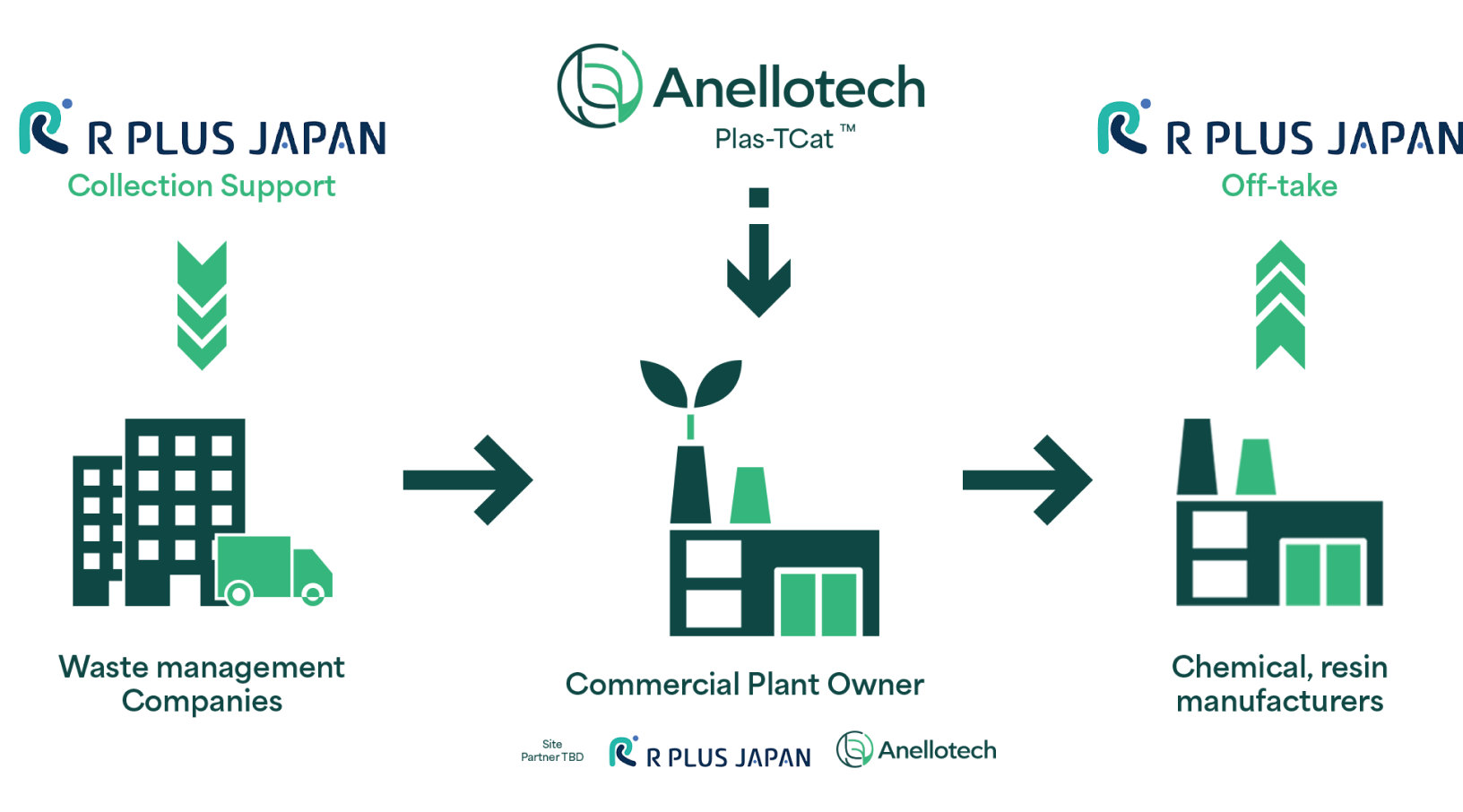

David Sudolsky
Anatoly Garelik
Raghava Dasarathy
Leslaw Mleczko
Charles Sorense
Jean-Pierre Burzynski
Thomas Erickson
Prof. George W.Huber



An example of Anellotech off-take strategy is being demonstrated in Japan. R Plus Japan, Anellotech’s commercialization and funding partner, has 40+ member companies interested in taking off-take from commercial plants. An added benefit of R Plus Japan’s involvement is their engagement for waste plastic feedstock supply for commercial plants

Co-Location Strategy
By co-locating Plas-TCat plants adjacent to existing refineries and steam crackers, plant owners can get access to recycled product content while Anellotech can leverage the existing plant assets for product purification and separation. This minimizes the overall capex for Plas-TCat plants, while providing the plant owners’ customers with “mass-balance approach” recycled polymer content to meet their promised ESG goals.

Anellotech’s Bio-TCat™ process was demonstrated at the TCat-8® demo plant, converting pine wood into hydrocarbons on a continuous basis. The plant optimized processes and produced tons of hydrocarbons for product development.
Engineering work to design the first commercial plant has been completed by Anellotech and its R&D, engineering and licensing partners IFPEN and Axens.
Work to obtain capital funding, partners and an industrial site is underway.






Bio-TCat produces highly desirable p-xylene, one of the core building blocks for making 100% bioPET beverage bottles.
Other aromatics are used to make all the styrenics, nylon, and polyurethane, enable offtakers to provide renewably sources polymers.
Bio-diesel and SAF are in high demand to decarbonize road and air travel.

Cost-Efficient Technology

Scalability

Feedstock Flexibility/
Low Quality Tolerance

Market Versatility

Technology Validation/
1/2 TPD Demo Plant

Strong Commercial Ecosystem
Anellotech directly produces bio-based aromatics and light olefins, such as benzene, toluene, xylene, ethylene, propylene and butylene along with renewable fuels, all derived from non-food biomass and recycled plastics.
BTX refers to mixtures of benzene, toluene, and the three xylene isomers, all of which are aromatic hydrocarbons. The xylene isomers are ortho – (or o-), meta – (or m –), and para – (or p –). BTX are three of the six primary petrochemicals produced using Anellotech’s technologies (along with ethylene, propylene, butylenes) from which most major commercial plastics are made from. For example, para-xylene is used for the production of PET for beverage bottling, polyester clothing, and a host of other plastics.


Olefins, also known as alkenes, are a class of hydrocarbons characterized by at least one carbon-carbon double bond, which gives them high reactivity and makes them valuable in the chemical industry. The most common olefins are ethylene, propylene and butylene which serve as essential building blocks for many everyday products

Paraffins, or alkanes, are stable hydrocarbons used widely as fuels, in candle wax, industrial lubricants, and cosmetics. Light paraffins produced by Plas-TCat, including ethane, propare and butane can be used as feedstock for steam crackers producing ethylene, propylene and butylene